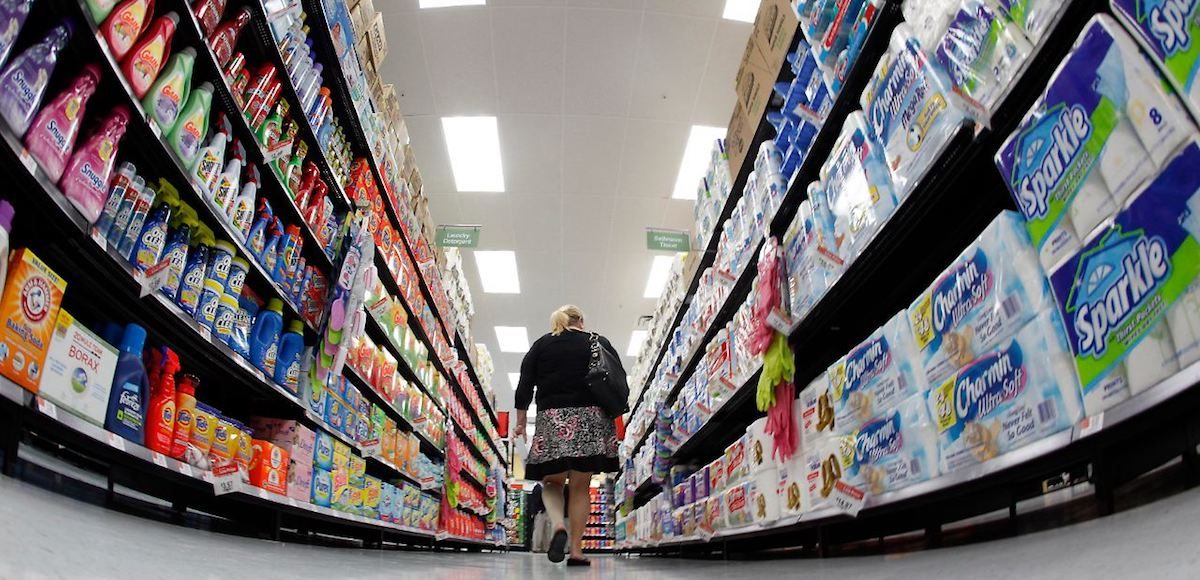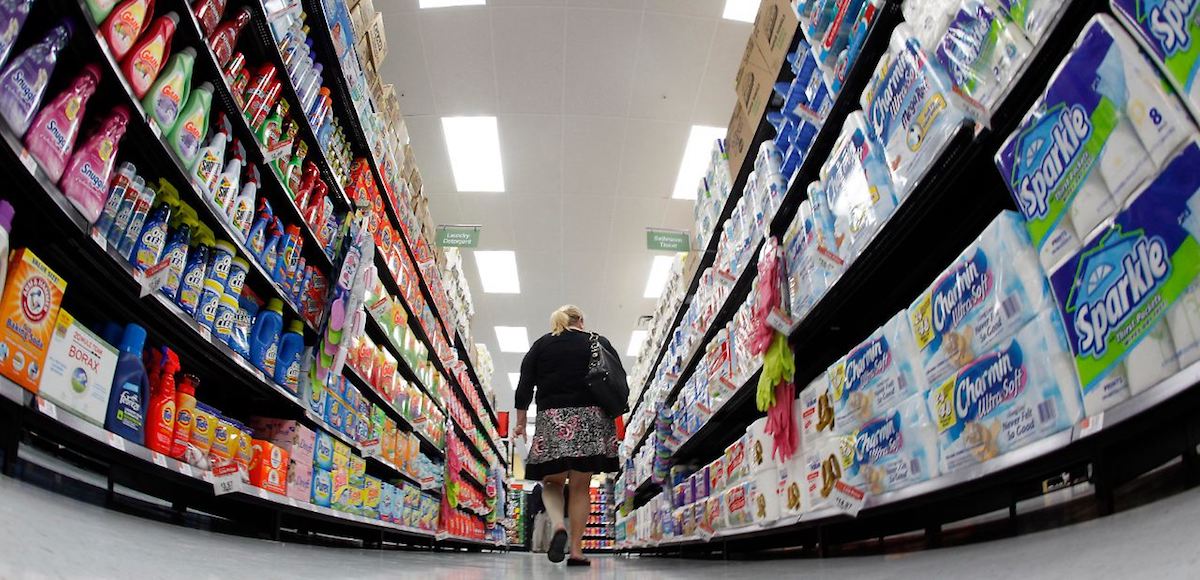

A shopper walks down an aisle in a newly opened Walmart Neighborhood Market in Chicago in this September 21, 2011. (Photo: Reuters)
The Survey of Consumers, a closely-watched gauge of consumer sentiment, “declined slightly” to 97.8 but remained at its second highest level since January 2017. The survey conducted by the University of Michigan has soared since President Donald J. Trump took office, hitting the highest level in 13 years in October, while the Conference Board’s Consumer Confidence Index hit the highest level in nearly 17 years.
“Consumer sentiment declined slightly in early November due to widespread losses across current and expected economic conditions,” said Richard Curtain, chief economist for the Survey of Consumers. “The losses were quite small as the Sentiment Index remained at its second highest level since January.”
The Current Economic Conditions declined but remained at an elevated 113.6, while the Index of Consumer Expectations declined from 90.5 to 87.6. The data are consistent with a 2.7% rise in personal consumption spending in 2018.
More from Richard Curtain, chief economist for the Survey of Consumers:
Overall, the Sentiment Index has remained trendless since the start of the year, varying by less that 4.0 Index-points around its 2017 average of 96.8. Consumers (and policy makers) have four key concerns: prospective trends in jobs, wages, inflation, and interest rates. An improving labor market was spontaneously mentioned by a record number of consumers in early November, and anticipated wage gains recorded their highest two-month level in a decade.
These favorable trends were countered by a slight rise in year-ahead inflation expectations and a growing consensus that interest rates will increase during the year ahead. Needless to say, the preliminary November data is hardly sufficient to indicate that the persistent strength in the labor market has finally prompted higher inflation. Moreover, consumers anticipated that the size of the changes would be rather small, leaving economic conditions largely unchanged at favorable levels.





